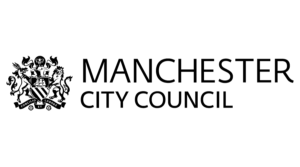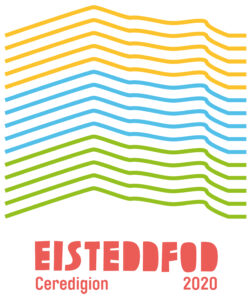I have always been an optimistic and determined sort of person that thrives in company and collaboration, but am I also taking part in ‘the great disconnection’ of people from self, each other, nature and truth by imposing a relentless optimism on a grave reality?
Recently the weight of global events, and the seemingly inexorable slide of humanity out of connection with everything that matters – including truth and a positive future – has felt even more serious than normal. It has challenged me to reconsider the true nature of things, and how I bring myself to the world. Luckily (or unluckily really) I have been furloughed from my Operations role at Shambala festival since April, and so I have had plenty opportunity to muse on this, alongside pathetic forays into gardening.
Like many of us who feel the climate crisis is important, I am doing “what I believe I am able to”, to take action on by leading my day-to-day life in a responsible way; buying ethically, making green travel choices, taking action in my work etc. And also like so many, sometimes I question whether my actions are rooted in a hopeless optimism, perhaps a misplaced belief in the power of behaviour change in the absence of systemic change (a topic for another day – see blog – Why Everything We Do Really Does Matter).
I first started to really think about disconnection when introduced to the focus on grief by the Extinction Rebellion movement in 2019. It felt alien to me to step into emotional grief – I realised I couldn’t easily access the emotion in relation to planet, even with an in-depth knowledge, appreciation and absolute commitment to the climate crisis. This is common of course, but the more I think about the loss of life and jeopardy our actions impose on the future, the more it seems that this disconnection might be the most important focus above all else, to inspire action and real change at scale.
I have recently been inspired by Charles Eisenstein’s erudite commentary on the risks woven into a new normal resulting from the changes happenning is society because of Coronavirus. In The Coronation (listen to the audio version read by Grace Jones here), he explores the narratives which we are living by, and the risk of becoming a more isolated and separate in society at this time. He states:
“To reduce the risk of another pandemic, shall we choose to live in a society without hugs, handshakes, and high-fives, forever more? Shall we choose to live in a society where we no longer gather en masse? Shall the concert, the sports competition, and the festival be a thing of the past? Shall children no longer play with other children? Shall all human contact be mediated by computers and masks? No more dance classes, no more karate classes, no more conferences, no more churches? Is death reduction to be the standard by which to measure progress? Does human advancement mean separation? Is this the future?”
It leads me to think there is far more to this moment in history that the ‘battle’ with a virus or the financial survival of our industry. Aside from the critically badly timed distraction that Coronavirus has provided from the climate crisis – if only nature had the same PR people as Coronavirus – we are facing a further step toward disconnection, and our fate as the live events and cultural industries has perhaps become entwined with that of humanity. We now have a central role to play in advocating for what it means to be human.
It’s been written about plenty, how gatherings and events are part of what it means to be human; to connect, express ourselves, gather together etc. Singing and dancing, ceremony and celebration have become scarce in our modern way of life, an anomaly to almost the entire of human history before us. Festivals of all kinds whether religious or otherwise are essential to keeping the flame alight for connection, even if the lineage of most traditional forms of celebration is severed.
I believe we need to underpin our actions by recognising that we need to step into a palpable sense of awe about the beauty, preciousness and interconnectedness of life and nature to really become ‘earth protectors’ as a normal way of life in or society. How did the term ‘earth protector’ land with you reading it now? Did it feel ‘alternative’ or strange? Did you relate to it? To think of our actions doing anything other than protecting the earth – a proxy for life itself – is what is really strange, right? That we would do anything other than devote our lives to protecting life, having been given life, is telling of where we are at as a norm.
Charles Eisentein poses the choice we have: “Yes, we can proceed as before down the path toward greater insulation, isolation, domination, and separation. We can normalize heightened levels of separation and control, believe that they are necessary to keep us safe, and accept a world in which we are afraid to be near each other. Or we can take advantage of this pause, this break in normal, to turn onto a path of reunion, of holism, of the restoring of lost connections, of the repair of community and the rejoining of the web of life.“
So where do we go from here? How can each of us connect with and make sense of all this, and take steps as individuals, organisations, and industry?
I think we all know where change starts, and that’s with each of us. And perhaps at least for some of us, Corona crisis has provided an opportunity to slow down, review pesrpectives, and connect with each other and nature, an important step.
I have recently discovered the term ‘pronoia’, the antidote to paranoia – a state of mind in which you believe the world around you conspires to do you good – in a piece of writing by Rob Brezsny[1]. I think it might hold a key to one of the things we need to find in ourselves at this challenging time in order inspire action toward a better future:
Pronoia is fuelled by a drive to cultivate happiness and a determination to practice an aggressive form of gratitude that systematically identifies the things that are working well. But it is not a soothing diversion meant for timid Polyannas strung out on optimistic delusions. It’s not a feel-good new age fantasy used to deny the harsh facts about existence. Those of us who perceive the world pronoiacally refuse to be polite shills for sentimental hopelessness
On the contrary, we build our optimism not through a repression of difficulty, but rather a vigorous engagement with it. We understand that the best way to attract blessings is to grapple with the knottiest enigmas, each fresh puzzle is a potential source of future bliss – an exciting teaching that may usher us to our next breakthrough.
Do you want to be a pronoaic player? Blend anarchistic rebelliousness with open-hearted exuberance. Root your insurrectionary fervour in expansive joy rather than withering hatred. Enjoy saying, ‘no’! but don’t make it the wellspring of your vitality. Be fuelled by blood-red yesses that rip against the grain of comfortable ugliness.
Charles Eisenstein talks much about the importance of narrative. The role of story and symbolism as effective communicators is getting far more attention generally as the search for ways to overcome inertia hot up along with the climate.
As a festival organiser I have found stories to be powerful. One example is the story of the Children’s Fire that Shambala festival has adopted as a core principle, told to us by international speaker, writer and change maker Tim Mac Macartney. This story from Native American Indian culture, tells of how a Council of Chiefs chooses its nation’s founding principles. The very first law made was;
No law, no action, no decision taken by this council would harm in any way the children for seven generations to come.
By children, it is meant all living things, all of life – not simply our human children. This simple story has helped us as a festival to cut through all the ‘social conditioning and noise’ in communicating what we stand for, internally as much as externally. In the words of Mac MaCartney, “Imagine a world in which every business, institution, government were based on this principle, how different things would be”.
In whatever way works for each of us, and with whatever stories we can find that touch us and communicate what is meaningful to us, we are all needed as storytellers and earth protectors, in the pub with friends, in our work places, as event organisers and as an entire live events industry.
Dr. Martin Luther King, Jr stated: “Even if I knew that tomorrow the world would go to pieces, I would still plant my apple tree .” At first glance it speaks to straight forward optimism, but I think there is more; that planning for the best or believing somehow helps to make it a reality.
Let’s create it. Let’s make events happen again, bring people together, and create the future we know is ours.
[1] Pronoia is the Antidote to Paranoia: How the Whole World is Conspiring to Shower You with Blessings (2015), Rob Brezney
























